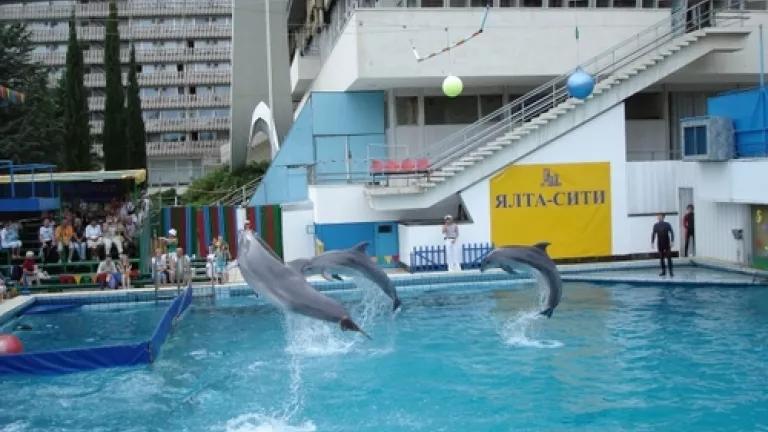This Week in Whales: Japan is Hunting Some Dolphin Species to Extinction; Canadians Say No to Greenwashing; Wild Killer Whales Captured for Export to Sea Parks

News in the world of whales this week (or close to it), presented by guest blogger Lauren Packard:
- The Japanese tradition of killing around 17,000 small cetaceans each year in Japan's coastal waters--made infamous by The Cove's depiction of the Taiji annual dolphin slaughter--is hunting many dolphin and whale species to extinction. Surprised? I'm not. The London-based Environmental Investigation Agency estimates that more than 1 million cetaceans have been killed in Japanese waters in the past 70 years. Japan's self-alloted catch limits for these animals are often based on outdated evidence and do not take into account declining populations--as a result, many species are being slaughtered at unsustainable rates. Even though their meat is riddled with mercury and other toxins, there is still a strong economic incentive to hunt these animals. For example, a sea park will spend up to $98,000 for a live dolphin.
- Last month, green groups obtained leaked copies of Enbridge's Northern Gateway Pipeline ad campaign, which featured a video wherein Enbridge's VP Janet Holder is compared to an orca. Did you know Janet and killer whales "both live in British Columbia"? And they both hate oil spills! So Janet plans to only use the safest oil tankers, because she will "do anything it takes to protect the place she loves." Yeah, it doesn't make sense to me either. Because oil and gas extraction is intrinsically harmful to marine life in a variety of ways--from increased shipping traffic to increased risk of oil spills--and no amount of green-washing can change that. The 1989 Exxon Valdez spill in British Columbia, for example, wiped out over a third of the area's killer whale populations. Enbridge recently aborted the ad campaign, perhaps due to public outcry.
- Government officials have just euthanized a 30-foot sperm whale that recently washed onto a Florida beach ill and emaciated. And, during the two months, fifteen gray whales have washed up dead in Russia.
- Seven wild killer whales were recently captured near Russia for export to sea parks. This capture was perhaps the first one in 15 years, because apparently airlifting an uncooperative 8,000 pound animal out of its native habitat is an expensive and logistically challenging endeavor. Who knew? The capture of wild marine mammals also raises ethical concerns and, in some instances, threatens the survival of the entire population from which the animal is captured, which is why the U.S. recently denied a permit that would have authorized the Georgia Aquarium to import belugas caught in the same sea as those unlucky killer whales.
- Fugitive Sea Shepherd anti-whaling activist Paul Watson testified in front of a federal court in Seattle on Wednesday. Japan sued him for interrupting its "scientific" whale hunt, and last year the 9th Circuit Court of Appeals ordered him and his associates to stay at least 500 yards away from Japanese whaling ships. His lawyers are arguing that he did not flout this injunction, but rather the Australian branch of Sea Shepherd perpetrated the damage to the whaling ships.
- Click here to listen to sperm whale vocalizations recorded in the Gulf of California. Researchers are still trying to ascertain what the vocalizations mean. Scientists, for example, can identify a killer whale's pod affiliations by listening to its song, but they aren't sure if the song constitutes a language, per se, with a syntax.
Meanwhile, this week in Wales.....
The dormouse may go extinct due to the destruction of its woodland habitat. Say it ain't so--this little guy is too cute (and serves important ecological functions, of course)!
Photo Credit: A dolphinarium in Ukraine, courtesy of Wanderer777 for Creative Commons

